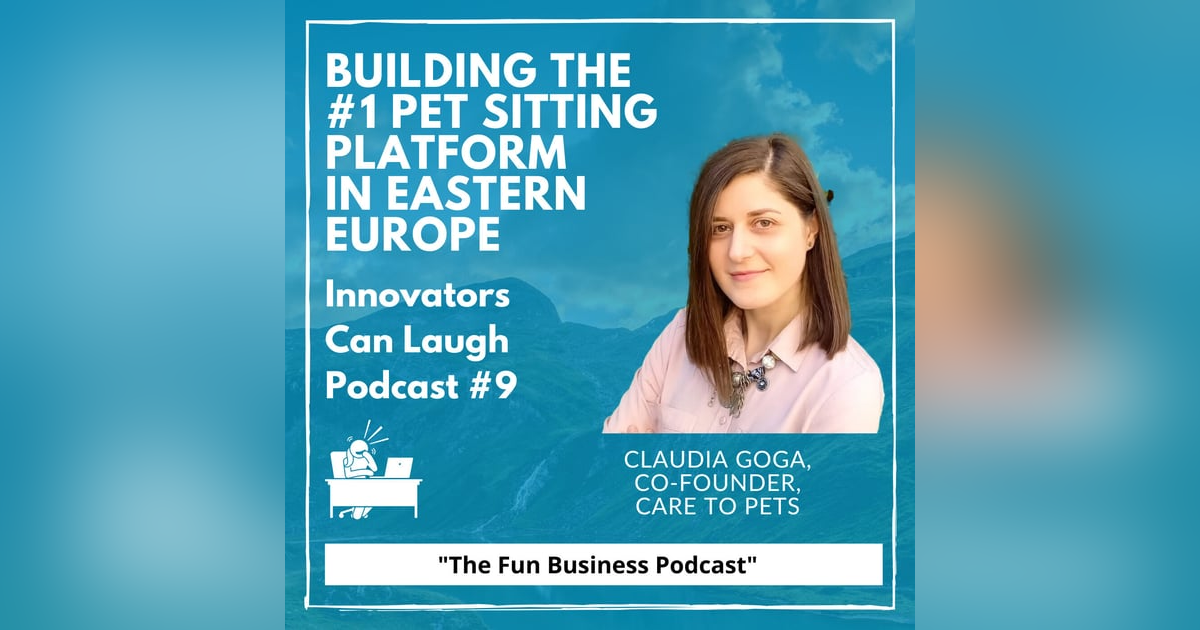It’s Raining Cats, dogs with Romania’s #1 Pet Sitting Platform

In this episode of Innovators Can Laugh, I sat down with Claudia Goga, co-founder of CaretoPets. We discussed what it’s like growing a business on a shoestring budget, how she beat the competition, and why it’s important to find a mentor.
I had so much fun talking with Romanian entrepreneur Claudia Goga (@LinkedIn). Claudia is the co-founder of CareToPets -Romania’s #1 pet sitting platform, and we covered a lot of topics in this episode.
When Claudia was younger, she enrolled in two different Universities (Math & Accounting) and while attending, learned how to code. She also made the decision that upon graduating, she would not work for anyone else.
During our conversation she shared what it’s like growing a business with a shoestring budget, how she beat the competition, and why it’s important to find a mentor.
Hope you enjoy!











